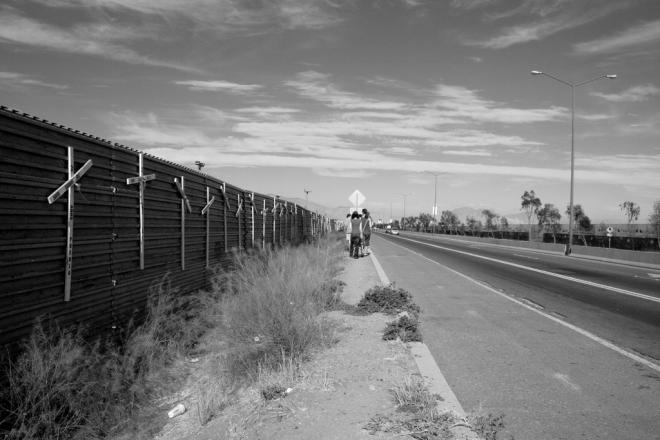Anonymous, unidentified bodies. At best, flows that must be “managed”; at worst, “human flesh”. But never human beings whose rights are violated with impunity or the protagonists of their own life stories. This is the narrative inherent in policies applied to migrants, migratory routes and the borders of rich countries.
According to UNHCR, the number of forcefully displaced people worldwide rose from 33.9 million in 1997 to 68.5 million in 2017. In 2018, the official number of deaths of migrants in transit was 4,476.1 The three deadliest regions were: the Mediterranean Sea (49% of deaths), the African continent (30%, mainly Northern Africa) and the Americas (11%, of which the majority occurred in Mexico and its border with the United States).

These figures do not truly reflect, however, just how dire the situation that migrants face is. It is impossible to determine the number of migrants who have disappeared while travelling, either assassinated by organised crime or crime in uniform or due to border policies that are increasingly externalised to impoverished countries. The vulnerability of people who are forced to leave their homes to flee violence, war or the poverty caused by the grabbing and plundering of their territories by transnational corporations is one of the reasons for their invisibility.
The caravans to the Mexico-US border organised by over 8,000 people, the majority from Central America, in late 2018 set a historical precedent. Appearing before press cameras from around the globe, they showed the world their capacity to organise collectively. They organised to exercise their freedom of movement and their right to safety – rights that the US, Mexican and Central American governments have denied them. Just as one of the caravans arrived in Mexico City in early November, the World Social Forum on Migrations 2018 got underway. The Forum brought together hundreds of activists, migrant organisations and solidarity from around the world.
This is an excerpt from an article by Monica Vargas that first appeared on the TNI Blog. It explains some of the main elements raised during the “Globalisation of Border Control and the Peoples’ Resistance” workshop held at the Forum. The workshop was organised by the Transnational Migrant Platform – Europe, La Via Campesina, Stop the Wall, the Observatorio de los Derechos Humanos de los Pueblos, Coordinadora de Solidaridad con Palestina en México and Transnational Institute. The goal of the workshop was to develop a collective analysis of border control that looks at the power and impunity of transnational corporations, militarisation, the externalisation of borders, Israel’s role as a laboratory for the wall industry and the criminalisation of international solidarity, among other issues. It also generated a space for the convergence of struggles and for exchanges between initiatives focused on resistance and building alternatives.
Image: A memorial on the Tijuana side of the border. Each cross represents a person who died trying to cross, and includes their name, age, and place of birth. Photo credit Photo credit Dan Cipolla via flickr, CC BY-NC-ND 2.0
